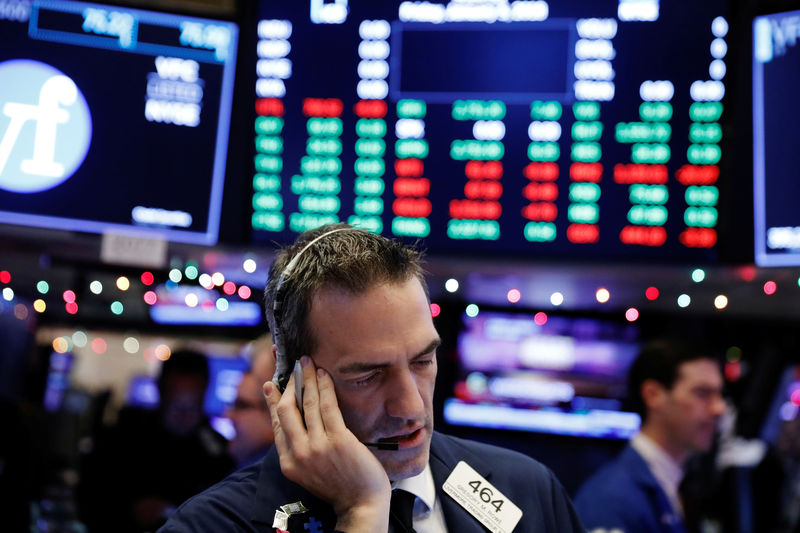By Yasin Ebrahim
Investing.com – The S&P 500 rose sharply Friday, as positive results from Merck's Covid-19 pill stoked investor optimism and triggered a sea of green on Wall Street following a sloppy September.
The S&P 500 rose 1.1%, the Dow Jones Industrial Average gained 1.4%, or 482 points, the Nasdaq was up 0.8%.
Merck & Company Inc (NYSE:MRK) reported that its experimental Covid-19 pills cut the risk of death and hospitalization by 50% in a study, sending its share price more than 8% higher.
The positive Covid-19 treatment news stoked investor optimism about the recovery amid an ongoing drag from the impact of the Delta variant.
Cyclical stocks including materials and energy took the lead, with the latter helped by expectations that energy prices will continue to climb to as high as $100 a barrel.
“If all these factors come together, oil prices could spike and lead to a second round of inflationary pressures around the world,” Bank of American said in a note.
Exxon Mobil (NYSE:XOM) was up nearly 4% after raising its forecast on third-quarter earnings, citing higher oil and gas prices. The oil major said higher energy prices could boost earnings by as much as $1.5 billion.
Bets on reopening stocks – those that benefit from easing pandemic restrictions – renewed, with cruise and airlines companies leading the way.
United Airlines Holdings (NASDAQ:UAL), American Airlines Group (NASDAQ:NASDAQ:AAL), Carnival (NYSE:CCL) and Norwegian Cruise (NYSE:NCLH) were sharply higher.
Big tech, which fell victim to rising interest rates recently, found its footing.
Apple (NASDAQ:AAPL), Facebook (NASDAQ:FB) and Alphabet (NASDAQ:GOOGL), and Microsoft (NASDAQ:MSFT) ended in the green. Amazon.com (NASDAQ:AMZN) closed lower.
On the economic front, the faster pace of inflation shows little sign of abating, but the consumer, which makes up about two-thirds of the economy, continues to spend.
The Federal Reserve's preferred inflation measure, the personal consumption expenditures (PCE) price index excluding food and energy, rose 3.6% in the 12 months through September.
Consumer spending in July rose by 0.8% month-on-month, from a 0.1% decline in the prior month.
“We remain constructive on consumer spending in the coming quarters. Even as the impulse from fiscal stimulus targeted at households fades, labor market income and a savings cushion should support continued spending,” Morgan Stanley (NYSE:MS) said.
In Washington, meanwhile, House Speaker Nancy Pelosi was forced to delay a planned vote on the $1 trillion bipartisan infrastructure package amid ongoing wrangling within the Democratic caucus.
The House was hoping to pass the bipartisan infrastructure package and the $3.5 trillion reconciliation bill simultaneously, as part of a two-track strategy. But Sen. Joe Manchin said he would support a reconciliation package worth only $1.5 trillion, well short of the proposed $3.5 trillion.
Looking ahead, investors anticipate another wild week amid several events that could dominate direction in the broader market, including the Federal Reserve's September meeting minutes, the OPEC meeting, and the monthly jobs report to round out the week.
"Since labor supply issues became apparent this spring, we've been eagerly awaiting September payrolls, expecting them to show a sharp acceleration in the pace of hiring," Jefferies (NYSE:JEF) said in a note.
